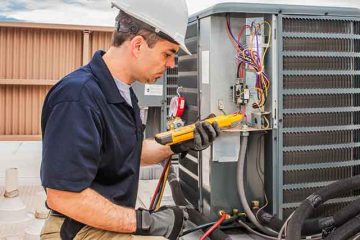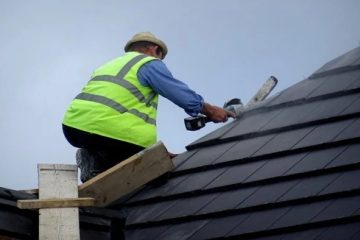Granny flats, also known as accessory dwelling units (ADUs), are becoming increasingly popular as homeowners seek to maximize their property’s potential. Whether used as a guest house, rental unit, or additional living space for family members, granny flats offer versatility and value. However, transforming your vision into reality requires selecting the right builder for the job. In this comprehensive guide, we’ll explore the essential factors to consider when choosing the best granny flats builder to meet your needs.
Understanding Granny Flats
Before diving into the process of selecting a builder, it’s essential to understand what granny flats are and how they can benefit homeowners. Granny flats are secondary dwellings located on the same property as the main residence. They are typically smaller in size but fully equipped with living amenities, such as a kitchen, bathroom, and sleeping area. Granny flats offer several advantages, including:
- Increased Property Value: Adding a granny flat can significantly increase the value of your property, providing a valuable asset for resale or rental income.
- Versatile Use: Granny flats can serve various purposes, from providing housing for elderly parents or adult children to generating rental income or serving as a home office or studio.
- Affordable Housing Solution: Granny flats offer a more affordable housing option compared to traditional single-family homes, making them an attractive choice for homeowners and renters alike.
Researching Granny Flats Builders
When it comes to selecting a builder for your granny flat project, thorough research is essential. Here are some steps to help you find the best builder for your needs:
- Ask for Recommendations: Start by asking friends, family, and colleagues for recommendations. If you know someone who has recently built a granny flat, inquire about their experience with the builder and whether they would recommend them.
- Online Reviews and Ratings: Utilize online review platforms and builder directories to research builders in your area. Pay attention to both positive and negative reviews, and look for patterns in the feedback. Websites like Houzz, Angie’s List, and Yelp can provide valuable insights into the reputation and quality of work of different builders.
- Check Credentials: Verify that the builders you’re considering are properly licensed, insured, and experienced in building granny flats. Look for builders who specialize in accessory dwelling units and have a proven track record of successful projects.
- Portfolio of Past Projects: Review the portfolios of potential builders to get a sense of their style, craftsmanship, and attention to detail. Look for examples of granny flats they have built in the past and assess whether their work aligns with your vision for your project.
- Customer References: Don’t hesitate to ask builders for references from past clients. Contact these references directly to inquire about their experience working with the builder, the quality of their workmanship, and any challenges they encountered during the project.
Evaluating Builder Qualifications
Once you’ve compiled a list of potential builders, it’s time to evaluate their qualifications and capabilities. Here are some key factors to consider:
- Experience: Look for builders who have extensive experience in constructing granny flats and are familiar with local building codes and regulations. An experienced builder will be better equipped to navigate the complexities of the construction process and ensure that your granny flat is built to code.
- Quality of Workmanship: Assess the quality of the builder’s workmanship by inspecting past projects and talking to previous clients. Look for signs of attention to detail, durability of materials, and overall craftsmanship.
- Communication Skills: Effective communication is essential throughout the building process. Choose a builder who communicates clearly, listens to your needs and concerns, and keeps you informed every step of the way.
- Budget and Timeline: Discuss your budget and timeline with each builder to ensure they can accommodate your needs. Beware of builders who provide overly optimistic estimates or pressure you to make hasty decisions without fully considering your budget and timeline constraints.
Meeting with Potential Builders
Once you’ve narrowed down your list of potential builders, schedule meetings with each of them to discuss your project in more detail. Treat these meetings as interviews and come prepared with a list of questions to ask. Here are some topics to cover:
- Design and Customization Options: Inquire about the builder’s design capabilities and customization options. A good builder will work closely with you to understand your vision for your granny flat and bring it to life through thoughtful design and innovative solutions.
- Construction Process: Ask the builder to walk you through their construction process from start to finish. Make sure you understand each phase of the project and what to expect in terms of timelines, milestones, and potential challenges.
- Permits and Approvals: Discuss the builder’s process for obtaining permits and approvals from local authorities. Ensure that they are familiar with the regulatory requirements for building granny flats in your area and can handle the necessary paperwork on your behalf.
- Warranty and Aftercare: Inquire about the builder’s warranty and aftercare services. A reputable builder will stand behind their work and offer a comprehensive warranty to protect you against any defects or issues that may arise after the project is complete.
Making Your Decision
After meeting with potential builders and evaluating their qualifications, it’s time to make your decision. Consider the following factors:
- Compatibility: Choose a builder who you feel comfortable working with and who shares your vision for your granny flat. Building a granny flat is a collaborative process, so it’s essential to choose a builder who listens to your input and values your ideas.
- Reputation and References: Take into account the builder’s reputation and references when making your decision. A builder with a strong track record of satisfied clients is more likely to deliver a successful project.
- Cost and Value: While cost is an important consideration, it’s essential to weigh it against the value provided by the builder. Don’t automatically choose the cheapest option without considering the builder’s qualifications, experience, and quality of workmanship.
- Gut Feeling: Trust your instincts when making your decision. If something doesn’t feel right or if you have doubts about a particular builder, it’s best to explore other options rather than proceeding with someone you’re not entirely comfortable with.
Conclusion
Selecting the best granny flats builder for your needs is a crucial step in transforming your vision into reality. By conducting thorough research, evaluating builder qualifications, and meeting with potential builders, you can make an informed decision that ensures a successful and stress-free construction process. Remember to prioritize compatibility, reputation, and value when making your decision, and trust your instincts to guide you towards the builder who will bring your granny flat dream to life.




